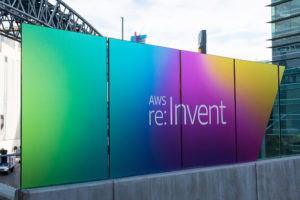
AWS Adds ML and Differential Privacy Features to Clean Rooms Service

(VectorMine/Shutterstock)
The digital advertising and marketing industry relies heavily on collecting, storing, and sharing consumer data. The problem with that is that some of the online tools used for handling consumer data can be intrusive and infringe upon consumer privacy. Numerous privacy regulations have been rolled out to help protect consumer data, pushing the advertising and marketing industry into an existential crisis.
Amazon launched the AWS Clean Rooms service last year in November offering an efficient and secure environment to combine and analyze data. It offers a solution to privacy concerns by enabling marketers to analyze data sets from multiple parties without having access to the underlying data.
At the 12th edition of the re:Invent conference in Las Vegas that kicked off on November 27th, AWS delivered a rapid-fire series of unveilings and announcements, including some major upgrades to the Clean Rooms service
The two key upgrades included the introduction of AWS Cleans Room ML which enables customers and partners to deploy ML models without revealing raw data. The other major upgrade is the introduction of the AWS Clean Differential Policy to enhance privacy protection for user data.
AWS Clean Rooms ML
The AWS Clean Rooms ML is available in preview. This new capability allows users to generate predictive insights using ML models while keeping the consumer data protected. The Clean Rooms ML uses a small dataset of customer records to generate a lookalike AI model with an expanded set of similar records. This service can save companies months of development work to build, train, tune, and deploy their own model.
The Clean Rooms ML service helps unlock various opportunities to generate insights. For example, airlines can collaborate with online booking services to offer customized promotions to users with similar characteristics. Similarly, brands can use the service to deliver highly relevant advertising experience.
AWS plans to add a series of ML models next year, including a healthcare model, where research institutions and hospital networks can find candidates similar to existing clinical trial participants to accelerate clinical studies.
“With AWS Clean Rooms ML lookalike modeling, you can train your own custom model using your data, and invite your partners to bring a small sample of their records to a collaboration to generate an expanded set of similar records while protecting you and your partner’s underlying data,” Swami Sivasubramanian, vice president of data and AI at AWS, said during his keynote address at AWS re:Invent.
AWS Clean Rooms Differential Privacy
Differential privacy is not a new concept. It is used by several organizations that have vast amounts of data. It is essentially a mathematical framework designed to maximize the privacy of individuals in datasets. A common problem with differential privacy is that it is challenging to implement as it requires an in-depth understanding of complex mathematical theories and formulas.
The AWS Clean Rooms Differential Privacy, available in preview, helps simply the implementation through flexible and intuitive controls. In just a few clicks, users can create configured tables, add customer analysis rules, and associate the conquered tables with AWS Clean Rooms making it available for querying. They can also customize the tables to meet their specific requirements.
Using the fully managed capabilities of AWS Clean Rooms, users do not need to have any differential privacy expertise to protect sensitive data. The AWS Clean Rooms Differential Privacy service obfuscates the contribution of any individual user, allowing you to run a wide range of SQL queries without worrying about exposing confidential or private data.
The latest advancements in AWS Clean Rooms, including the use of AI, significantly boost the capabilities of the service. It also reinforces the position of AWS as a top large cloud provider in the market.
Related Items
AWS Announces Powerful New Offerings to Accelerate Generative AI Innovation
Five AWS Predictions as re:Invent 2023 Kicks Off




























